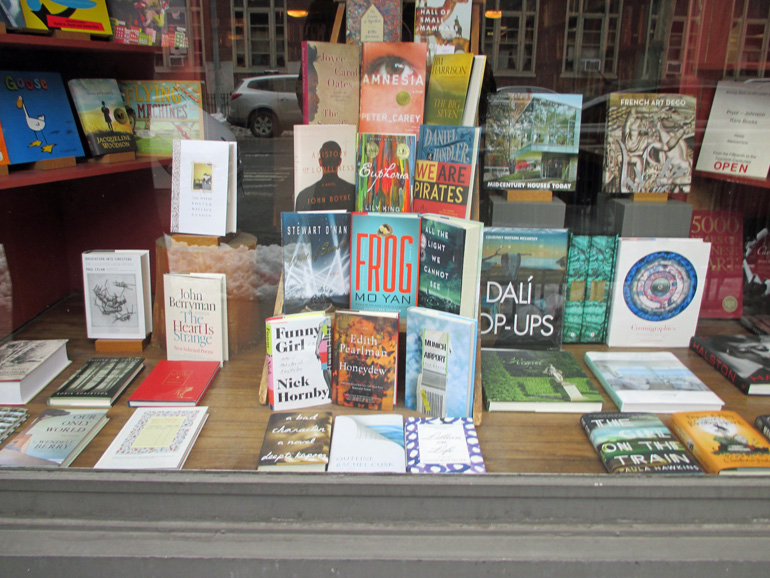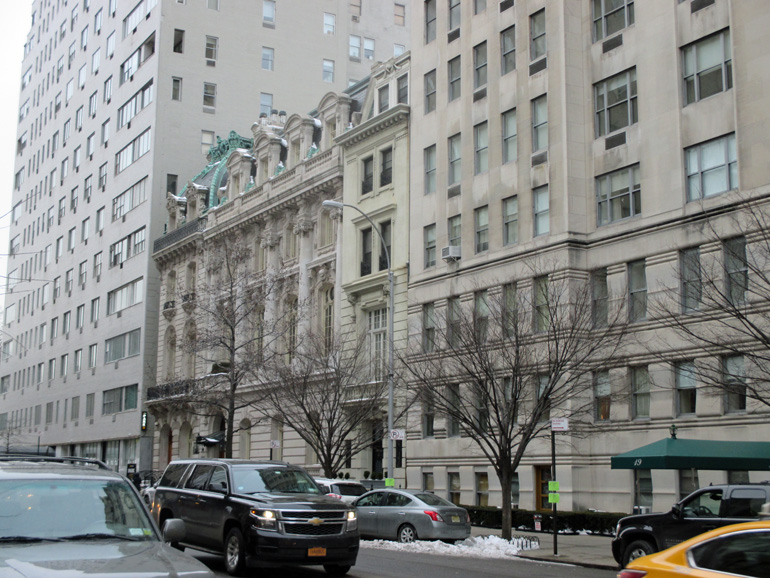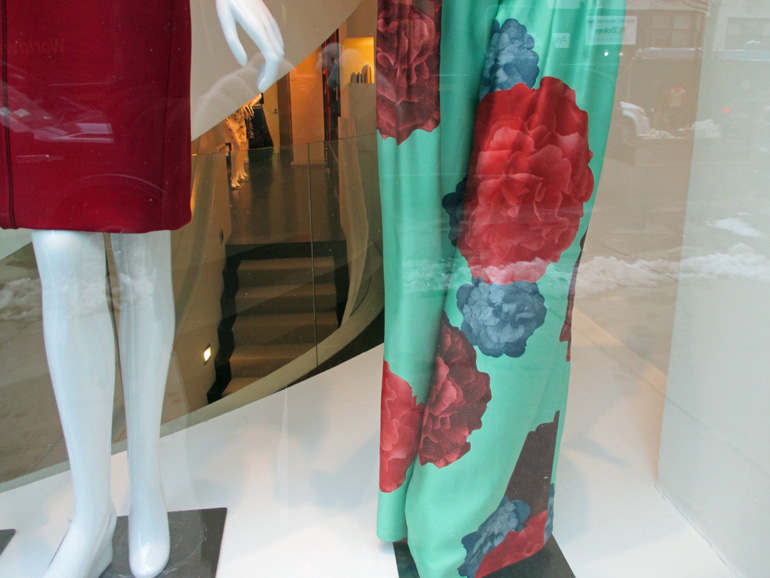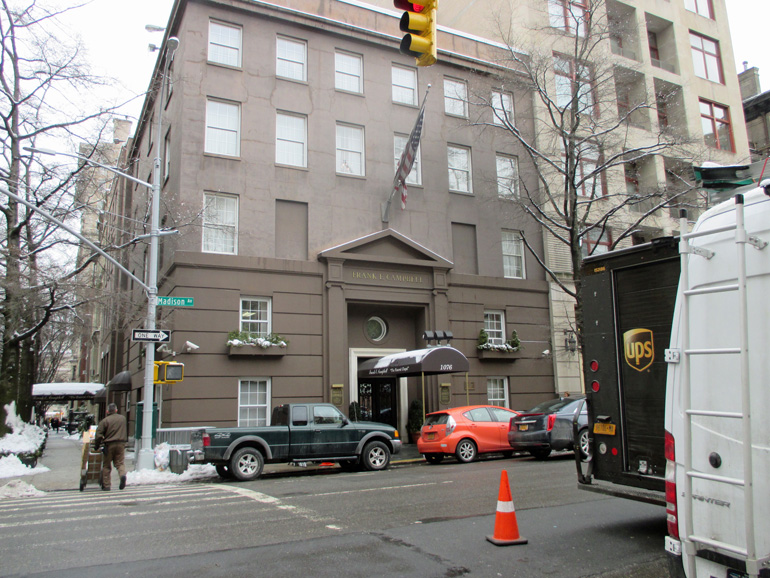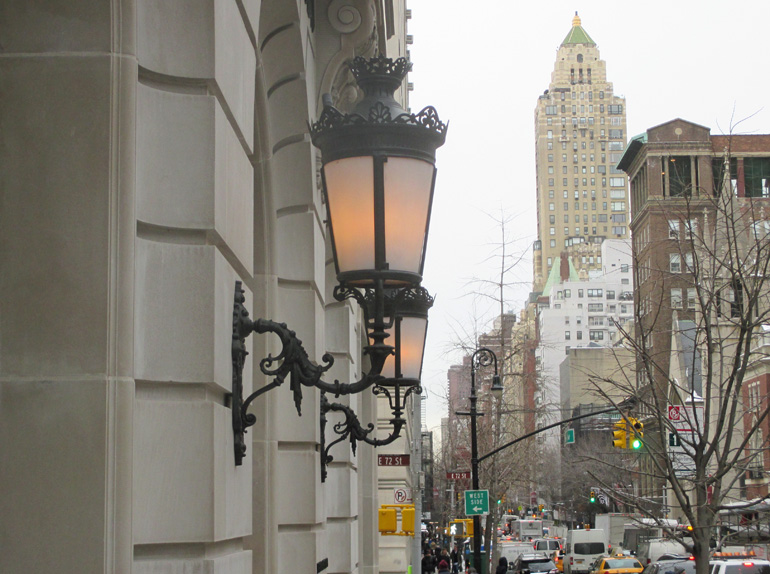Labor Relations Note:
Hot and Cold
27 February 2015
Friday, February 27th, 2015
There are too many books in the pile beside my reading chair. I’m not keen on any of them, but I’m also by no means disposed to relegate any to the limbo of lectio interrupta. At times like this, I choose the book that I’m likeliest to get through quickly and then hunker down, not to be distracted. At the moment, that book is Lee Standiford’s book about the Homestead Strike of 1892, Meet You In Hell. (It masquerades as a book about Carnegie and Frick.) I stayed up rather late last night, almost thrilled by Standiford’s harum-scarum account of the deadly but somewhat farcical intervention of the Pinkerton men, and drawing solace from the evidence that American humbug, which is all our political class has to offer these days, has at least the patina of a venerable tradition.
During the strike, the argument was made more than once that, just as Carnegie and Frick had property rights in their steel mill, so the workers had rights in, or to, their jobs. I want to agree with this, but I can’t. Jobs are too evanescent, at least in the long term. They come out of nowhere, and then they disappear, usually long before the people doing them stop collecting paychecks. Perhaps this will not always be the case; perhaps we will settle into economic patterns as unchanging as those that governed the European peasantry until the late Eighteenth Century. But we are in no position at the moment to try to identify the jobs that will always be with us.
The steelworker’s job, in the 1890s, whether skilled or unskilled, was not likely to be pleasant or healthy. Strong men were used up before they reached fifty. Talking about the right to have such a job sounds rather like insisting upon a good seat in hell. Men spent their own lives, literally, so that their wives and children would eat and perhaps prosper. The luckier children would push through the education barrier and never have to worry about manual labor. Everything about steelmaking in those days screamed short term. The mills themselves, huge and capital-intensive as they were, were constantly remodeled, and even replaced entirely, to accommodate changes in the market and in technology. Steel manufacture today bears little resemblance to Frick’s operation — so little, in fact, that the only common element may be the production of steel. Workers are immensely more productive — business-speak for expressing the fact that you can do the job with far fewer of them.
Always remember that the capitalist’s ideal number of employees is zero. Two things tend to happen when capitalists reduce their workforce, but these two things have an unsteady relationship. Sometimes, the price of the product goes down. More often, the profits realized by the capitalist go up. Lower prices have always been thought to be a prima facie good. but the low price of gasoline at the moment is leading a lot of observers to question that assumption. It seems to me that the ideal price is “affordable.” That is, the people who need the product can pay for it without making unseemly sacrifices. Need is a key part of this calculation. Nobody needs a very large hi-def screen. (Quite the reverse, it may well be.) People need transportation; they do not need particular vehicles. Affordable health care is far more important. So is healthy food, something that is now available only to the affluent. And to get back to cars for a moment: the price of the automobile is socially negligible. Socially salient are all the other costs of operating a private vehicle: maintenance, insurance, and parking. We think too much about stuff. What if all the stuff that we needed were just given to us, but we remained responsible for all the upkeep. This is a serious vision: in the ideal economy, everything would be capable of updates and upgrades (rather than”repairs”), and nothing would need to be replaced. The ideal economy would be less mechanical and more organic.
“Affordable” is one of those concepts that defy definition while being instantly recognizable in everyday experience. Ideally, everyone can have a job paying a wage that makes a secure and healthy life, with something left over for discretionary fun, affordable. I’ll take that one step further: a good definition of the humane life is the affordable life. Anything less is stunting and wrong. Which is not to say that lives lived below the threshold of affordability are the result of anybody’s fault. But because of the entrepreneurial origins of even our most stolid utilities, we still put profits first, because that is how new businesses not so much flourish as just plain survive. As new businesses, that is.
I do believe that, if a job needs doing, then the incumbent who is doing it satisfactorily has a better right to continue doing it than a less expensive worker has to take it over. Has there been research, philosophical or otherwise, into how much profit ought to go to workers? It seems to me that this rate would be a figure that shifted with time. At the beginning of an enterprise, workers might quite fairly be ill-paid, or even asked to work for free (ie “equity,” which may well turn out to be a big piece of nothing). In a new business, it is typically necessary to plow most revenues into the enlargement and enhancement of operations. But as dividends rise — and by “dividends” I mean not just (re-)payments to investors but the “salaries” and “bonuses” of upper management as well — as the puddle of money that is not required to improve the business gets bigger, so, it seems, should the worker’s wages, and very much in some sort of proportion. Ultimately, capitalists ought to disappear from businesses entirely, replaced by credentialed, professional managers who have no interest in profits at all. Ultimately, a business is run as a social utility, committed to providing useful products or services at affordable prices (meaning prices that support affordable wages) while not harming the environment. That is where the Industrial Revolution ought to take us.
I’ll have a rather different report to file when I finish reading Standiford’s book. It’s not my sort of thing at all, but I couldn’t resist buying it at the Frick Collection gift shop. O the irony! For Henry Clay Frick was not himself a humbug. He was rather a very cool customer who knew how to exploit everyone else’s willingness to be one. An honest devil, really: “Meet you in hell” was his reply to Carnegie’s request for a deathbed reconciliation.
Bon weekend à tous!











